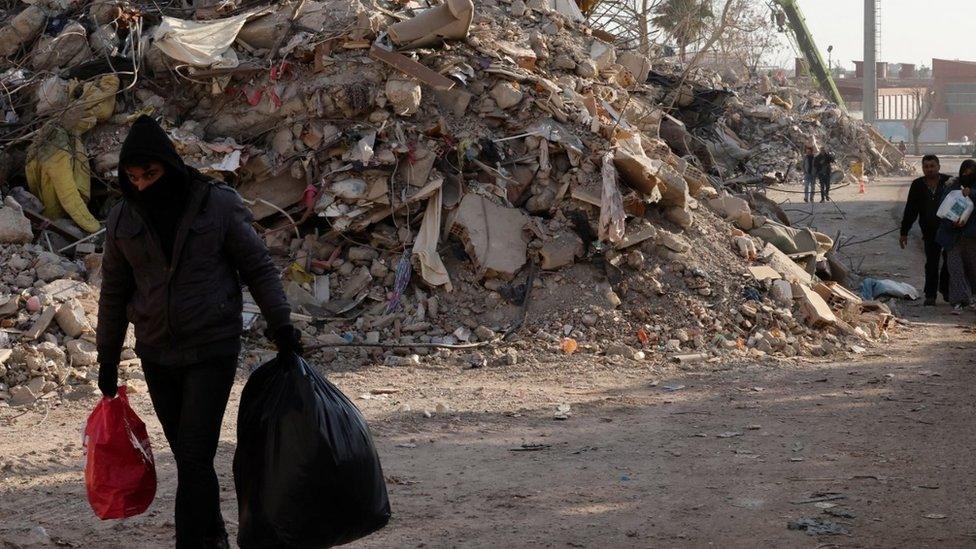Turkey earthquake: Rescue effort ends in all but two areas
- Published

Searches will continue in Kahramanmaras, the epicentre of the quake
Turkey has ended rescue efforts in all but two provinces, almost two weeks after a massive earthquake killed tens of thousands of people, the country's disaster agency said.
Searches will continue in Kahramanmaras and Hatay, the agency's chief said.
However, hopes of finding anyone else alive in the rubble are fading fast.
Meanwhile, US Secretary of State Antony Blinken has arrived in Turkey and announced $100m (ТЃ83m) in humanitarian aid.
The epicentre of the 7.8-magnitude earthquake on 6 February was in Kahramanmaras. More than 44,000 people are confirmed to have lost their lives in south-eastern Turkey and northern Syria.
The death toll is expected to climb, with about 345,000 apartments in Turkey known to have been destroyed and many people still missing. Neither Turkey nor Syria have said how many people are still unaccounted for.
"In many of our provinces, search and rescue efforts have been completed," the disaster agency's chief, Yunus Sezer, told reporters in Ankara.
He said search and rescue efforts were continuing at around 40 buildings in the two provinces, but he expected this number to fall by Sunday evening.
Rescue workers pulled at least three people from the rubble on Friday, more than 11 days after they were trapped when the earthquake hit.
Antony Blinken, right, and Turkish Foreign Minister Mevlut Cavusoglu travel to one of the worst-hit areas
Mr Blinken has arrived in Turkey to show support, despite the trip being planned before the quake. It is his first trip to Turkey since he took office more than two years ago.
The new aid "will be moving soon. Sadly, it's less about search and rescue but long-term recovery. This is going to be a long-term effort", he told reporters.
He added that getting aid into Syria was "very, very challenging".
He will travel to Hatay to see humanitarian efforts before travelling to meet President Recep Tayyip Erdogan on Monday. The pair are expected to discuss issues including Turkey's refusal to ratify Sweden and Finland's Nato membership applications.
Related topics
- Published18 February 2023
- Published16 February 2023